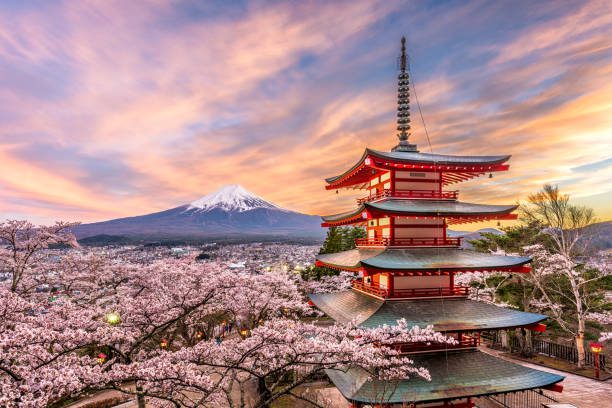By Zhong Sheng, People’s Daily
Japan says it seeks to “fundamentally reinforce its defense capabilities” and is planning to spend 43.5 trillion yen ($303.5 billion) on defense in the coming five years in a 2023 defense white paper it recently issued.
Turning a blind eye to facts, the white paper labels China as an “unprecedented and the greatest strategic challenge” to Japan. It hypes the so-called “China threat,” grossly interferes in China’s domestic affairs, and smears China’s defense policy, normal military development and legitimate military actions.
This clearly reveals the scheme of the Japanese side to find excuses for its own military expansion by fanning up the so-called “China threat.”
China pursues peaceful development and a defense policy that is defensive in nature. It has never challenged or threatened other countries. China reinforces national defense and military development to safeguard national sovereignty, security, and development interests, which is legitimate and beyond reproach.
Currently, the situations on the East China Sea and the South China Sea are generally stable. The Diaoyu Island and its affiliated islands have been China’s territory since ancient times. The navigation by the Chinese public service vessels in waters off the Diaoyu Island is a legitimate measure taken by China to exercise its national sovereignty in accordance with law.
Japan is not a country concerned with the South China Sea issue. It should stop creating chaos and confrontation. Military cooperation including joint naval patrol between China and relevant countries is consistent with international law and established international practice. Using China’s normal military development as an excuse and fanning up the rhetoric that China’s “unilateral attempts and actions to change the status quo” have been more and more frequent is just another awkward show of fabricating the so-called “Chinese military threat,” which intensifies the tension in the region.
On the East China Sea, no one has ever tried to change the status quo of the Diaoyu Island but Japan. In the Asia-Pacific, the ones who really threaten regional peace and stability and try to unilaterally change the status quo are some external countries that frequently show off their muscle with aircraft and warships for private interests.
Taiwan is China’s territory. The Taiwan question is purely China’s internal affair, which brooks no interference by any external force. The one-China principle, which matters the politic foundation of China-Japan relations, is a red line that shall not be crossed. Japan bears grave historical responsibility to the Chinese people on the Taiwan question. In recent years, instead of reflecting on its mistakes, Japan has repeatedly broken its promises on the Taiwan question and hollowed out the one-China principle.
From hyping that “Any contingency for Taiwan is a emergency for Japan” to the recent claim by a high-ranking Japanese official that Japan would likely provide defense equipment support or logistics support for Taiwan, Japan has turned a total blind eye to the basic norms governing international relations and the principles of the four China-Japan political documents, grossly interfered in China’s domestic affairs, and undermined the political foundation of China-Japan relations.
The remarks and deeds by the Japanese side have escalated tensions across the Taiwan Strait. This is extremely wrong and dangerous.
Japan has revealed its wrong perception of China by taking the latter as an “unprecedented and the greatest strategic challenge.” If Japan’s China policy was made based on this wrong perception, it would be misguided.
It is agreed in the fourth China-Japan political document that the two countries should “be partners, not threats.” This should be the basis for the mutual recognition between the two countries.
China’s Japan policy has been consistent and stable, and China never sees Japan as a threat. China opposes the “China threat” theory that’s biased and hostile.
For some time, Japan has made frequent negative actions on issues related to China, which severely disturbed the two countries’ bilateral relations. Only by abandoning the beggar-thy-neighbor mentality of zero-sum confrontation and establishing a correct understanding of China can Japan bring bilateral relations to the right track with concrete actions.
The true intention of Japan in hyping the so-called “China threat” is to find excuses for its own military expansion. The country says it follows a peaceful path, respects the rule of law and advocates peaceful diplomatic solutions to any disputes. However, what it does is undermining the post-war international order and seeking military expansion. It updated its National Security Strategy, National Defense Strategy and Defense Buildup Program, significantly lifted its defense budget and hyped the development of the so-called “counterstrike capability.”
The Japanese side has continuously violated the pacifist constitution and the “exclusively defense-oriented” principle in recent years and is moving further down the path of military expansion.
It also follows the wrong China policy of the United States, cooperating with the latter to make troubles on issues concerning China’s core interests. Regardless of the opposition from regional countries, Japan promoted NATO’s eastward foray, placing regional countries in the danger of major country gambling and bloc confrontation. This has triggered grave concerns and high alert from the international community.
Japan can never deceive the world with its efforts to hype the so-called “China threat” or with its excuses to seek military expansion. If Japan wants to be normalized, it should face up to and reflect on its history of aggression, stop interfering in China’s domestic affairs, stop undermining China’s interests, abandon its attempts to hype the so-called threats surrounding it and loosen the bonds on military development, and take a responsible attitude and concrete actions to win trust from its neighbors in Asia and the international community.
(Zhong Sheng is a pen name often used by People’s Daily to express its views on foreign policy and international affairs.)













